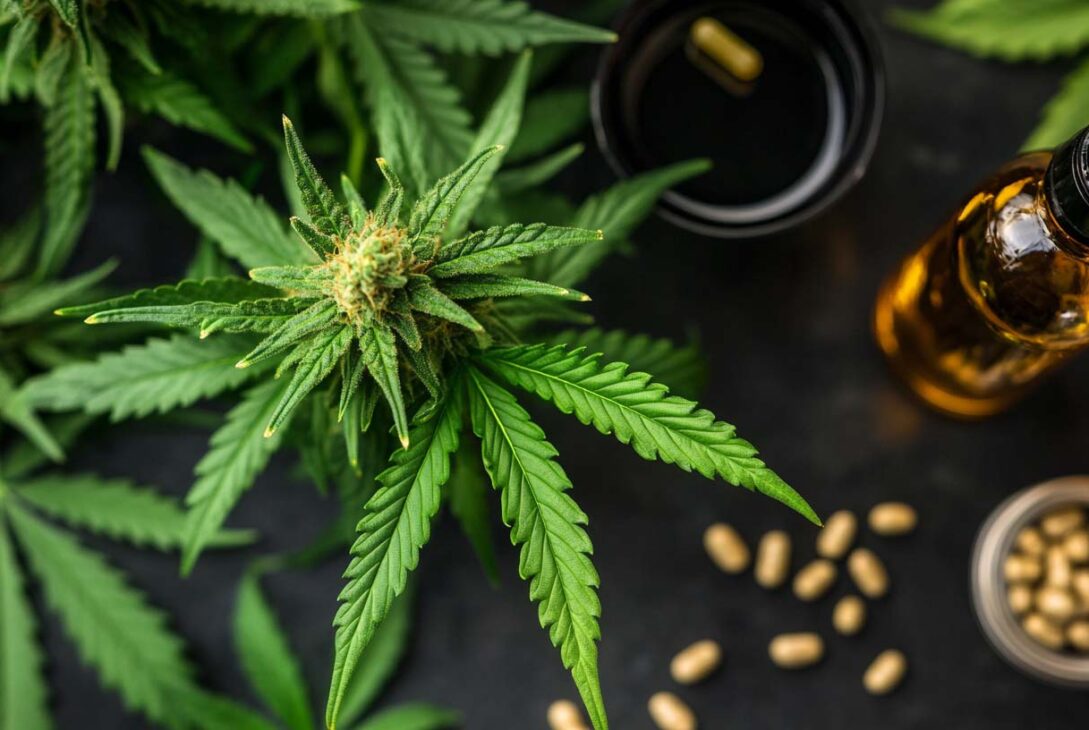Understanding the Role of Cannabinoids Beyond CBD: A Comprehensive Guide
The cannabis plant, particularly its hemp variety, is not just a source for CBD (Cannabidiol), a compound that has captured the world’s attention. It also houses a fascinating array of cannabinoids, each with unique properties and potential benefits. This guide delves into the multifaceted world of cannabinoids beyond CBD, shedding light on their roles, benefits, and what they mean for those seeking natural wellness solutions.
The Diversity of Cannabinoids
While CBD often steals the spotlight, the cannabis plant contains over 80 identified cannabinoids, each offering distinct properties and therapeutic potential. Understanding this diversity is essential for anyone interested in exploring the health benefits of cannabis.
THCA (Tetrahydrocannabinolic Acid)
THCA, the acidic precursor to THC (Tetrahydrocannabinol), is non-psychoactive and naturally produced by the cannabis plant. It converts to THC through a process called decarboxylation, which involves heating or drying the plant. Preliminary research suggests that THCA may have potential anti-inflammatory and neuroprotective effects, though comprehensive studies are still needed to validate these claims.
CBG (Cannabigerol)
Often referred to as “The Mother of All Cannabinoids”, CBG is the precursor from which THC, CBD, and CBC (Cannabichromene) are derived. This non-psychoactive compound is gaining traction not only for its fundamental role in cannabis biochemistry but also for its promising therapeutic properties.
Effects and Benefits of CBG
- Anti-Inflammatory and Pain Relief: CBG can help reduce inflammation and pain, particularly in conditions like rheumatoid arthritis and psoriasis, by targeting immune cells that attack tissues.
- Neuroprotective: By decreasing inflammation and free radicals in the nervous system, CBG may help prevent or slow the progression of neurodegenerative diseases, including Alzheimer’s and Parkinson’s.
- GABA Regulation: CBG has been shown to increase GABA levels in the brain, which could help alleviate anxiety, enhance sleep quality, and lower blood pressure.
- Digestive Health: For those suffering from digestive disorders such as ulcerative colitis or Crohn’s disease, CBG may provide relief by reducing inflammation in the digestive tract.
- Antibacterial and Antitumor Properties: Early studies suggest that CBG could inhibit tumor cell growth and exhibit antibacterial effects, opening the door for further research on its potential as a therapeutic agent.
CBC (Cannabichromene)
CBC is another non-psychoactive cannabinoid that arises from the same precursor as CBG. While less well-known, it holds its own set of therapeutic promises.
- Pain Relief: CBC has analgesic effects, making it a potential option for those seeking pain management without the psychoactive effects of THC.
- Anti-Inflammatory: Like CBG, CBC exhibits anti-inflammatory properties, which can be beneficial for inflammatory conditions.
CBN (Cannabinol)
CBN is primarily known for its sedative properties and is formed when THC oxidizes. As interest in natural sleep aids grows, CBN is emerging as a complementary option.
- Sleep Aid: CBN shows promise for improving sleep quality and promoting relaxation. Its sedative effects are attractive for those struggling with insomnia or sleep disturbances.
The Entourage Effect
An important concept in cannabinoid therapy is the entourage effect, which suggests that cannabinoids and other cannabis compounds work synergistically. This means that their combined effects can be greater than the sum of their parts. For example, combining CBD and CBG could produce enhanced pain relief and greater anti-inflammatory effects than either compound alone.
Specific Pairing Benefits
- Enhanced Pain Relief: Coadministration of CBD and CBG may lead to more effective alleviation of pain and inflammation, beneficial for conditions like chronic pain syndromes.
- Neuroprotective Effects: The combination could amplify neuroprotective benefits, offering potential in combatting conditions linked to neurodegeneration.
- Mood Stability: A combination of CBD and CBG may be more effective at fostering mood balance, positively influencing the endocannabinoid system and promoting emotional well-being.
Market Impact and Emerging Trends
The gradual awakening to cannabinoids beyond CBD is reshaping the hemp and cannabis industry landscape. As research uncovers more about lesser-known cannabinoids, consumer demand continues to grow.
Increasing Demand for CBG Products
The rising interest in CBG is sparking innovation, leading to a surge in CBG-infused products. These range from tinctures and gummies to topical creams. Many brands leverage the entourage effect, creating products that combine CBG with CBD for enhanced benefits.
Regulatory Evolution
Currently, the U.S. federal legal landscape permits hemp-derived products containing no more than 0.3% THC. This legal framework has opened doors for various cannabinoid products, including those featuring CBG, fostering a vibrant marketplace.
Research and Development
Heightened exploration into cannabinoids has propelled significant investment in research. The industry is committed to unlocking the full therapeutic potential of each cannabinoid through studies that investigate their effects, interactions, and applications in various health contexts.
Conclusion
As we’ve seen, cannabinoids extend far beyond the sphere of CBD, encompassing a plethora of compounds, each with its own potential benefits. CBG, in particular, exhibits remarkable anti-inflammatory, neuroprotective, and antibacterial properties, suggesting it could play a crucial role in an evolving approach to holistic health.
For those considering cannabinoid therapy, here are some actionable tips to keep in mind:
- Consult a Healthcare Professional: If you’re new to cannabinoids or have existing health conditions, seeking advice from a healthcare provider is crucial to ensure that you choose the right products for your needs.
- Select High-Quality Products: Opt for products from reputable manufacturers that conduct third-party testing. This ensures you’re consuming safe and effective cannabinoid products.
- Stay Informed: Educate yourself on the latest advancements in cannabinoid research and the evolving market trends to make informed choices about your health and wellness journey.
By embracing the diverse roles of cannabinoids beyond CBD, individuals open themselves to a broader spectrum of natural health solutions, which could lead to enhanced well-being and a higher quality of life. The journey into the world of cannabinoids is rich and rewarding, inviting exploration and discovery.





















